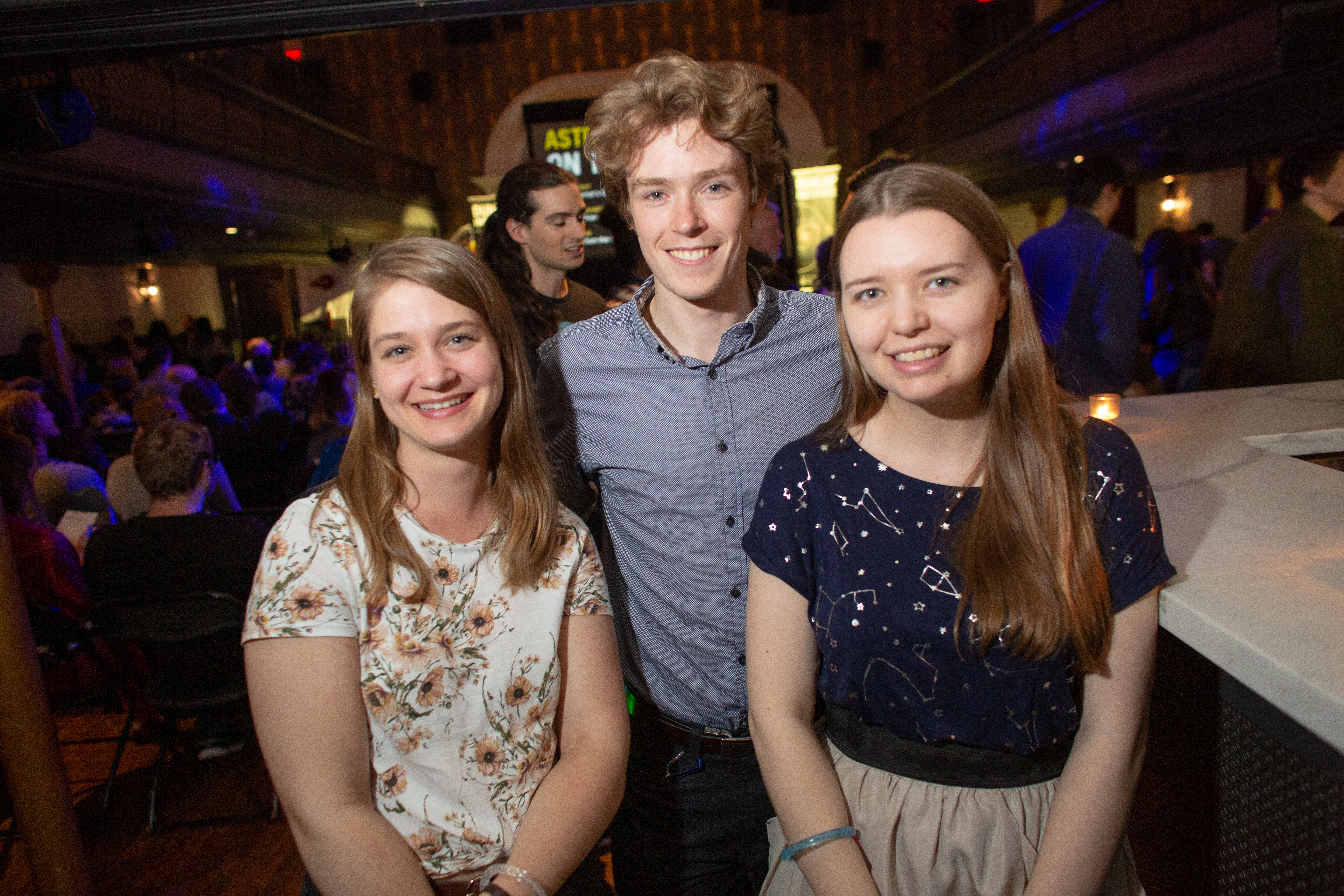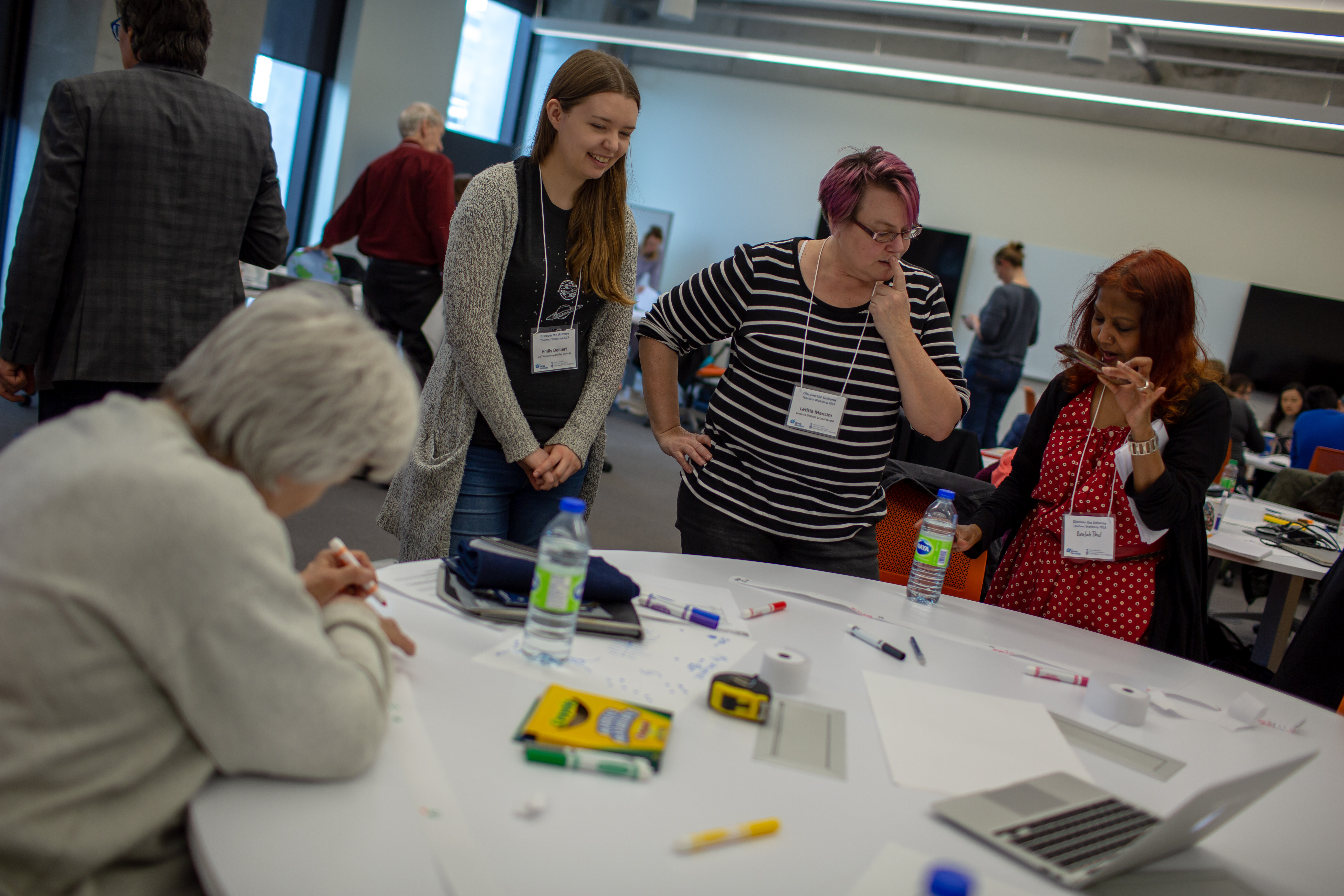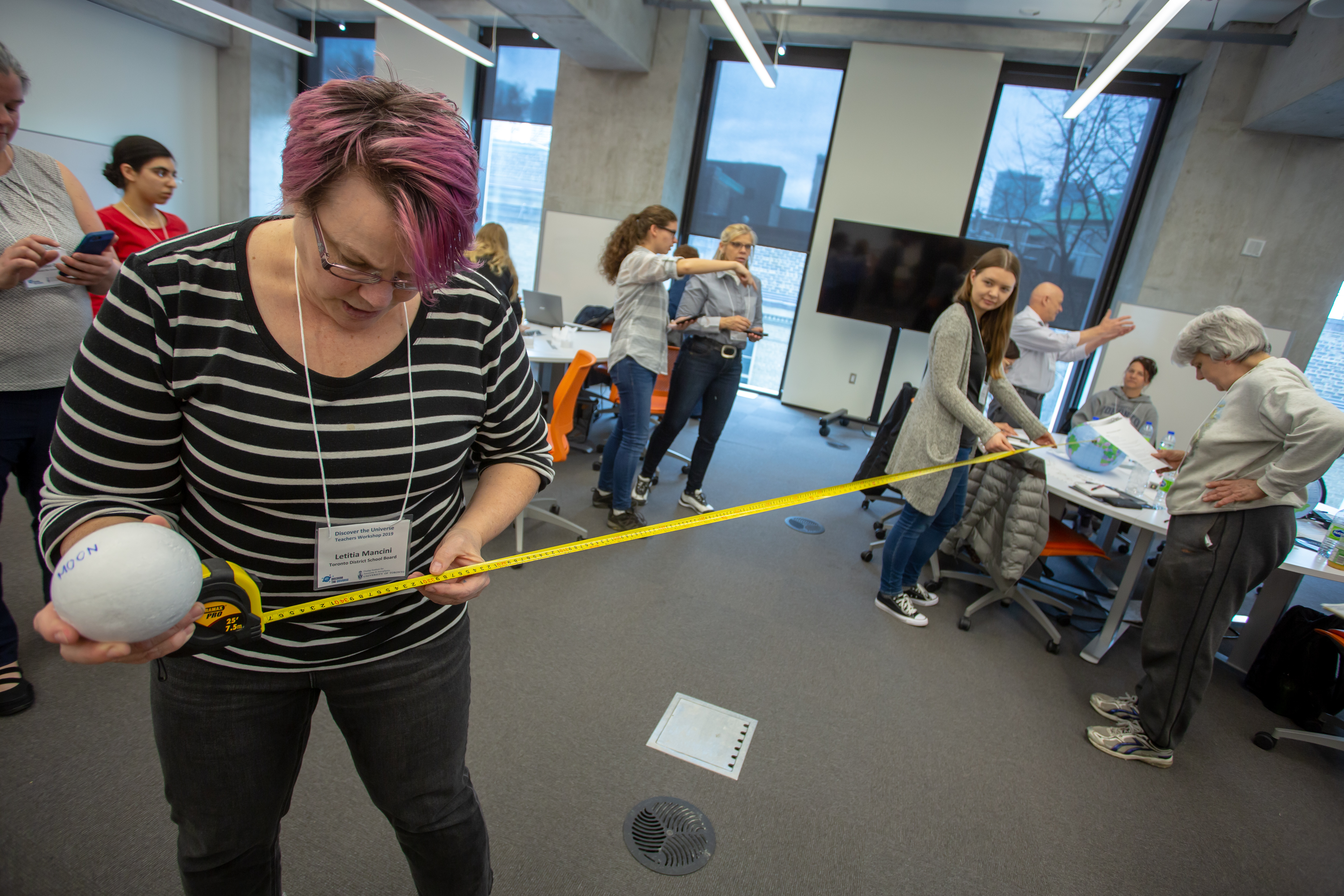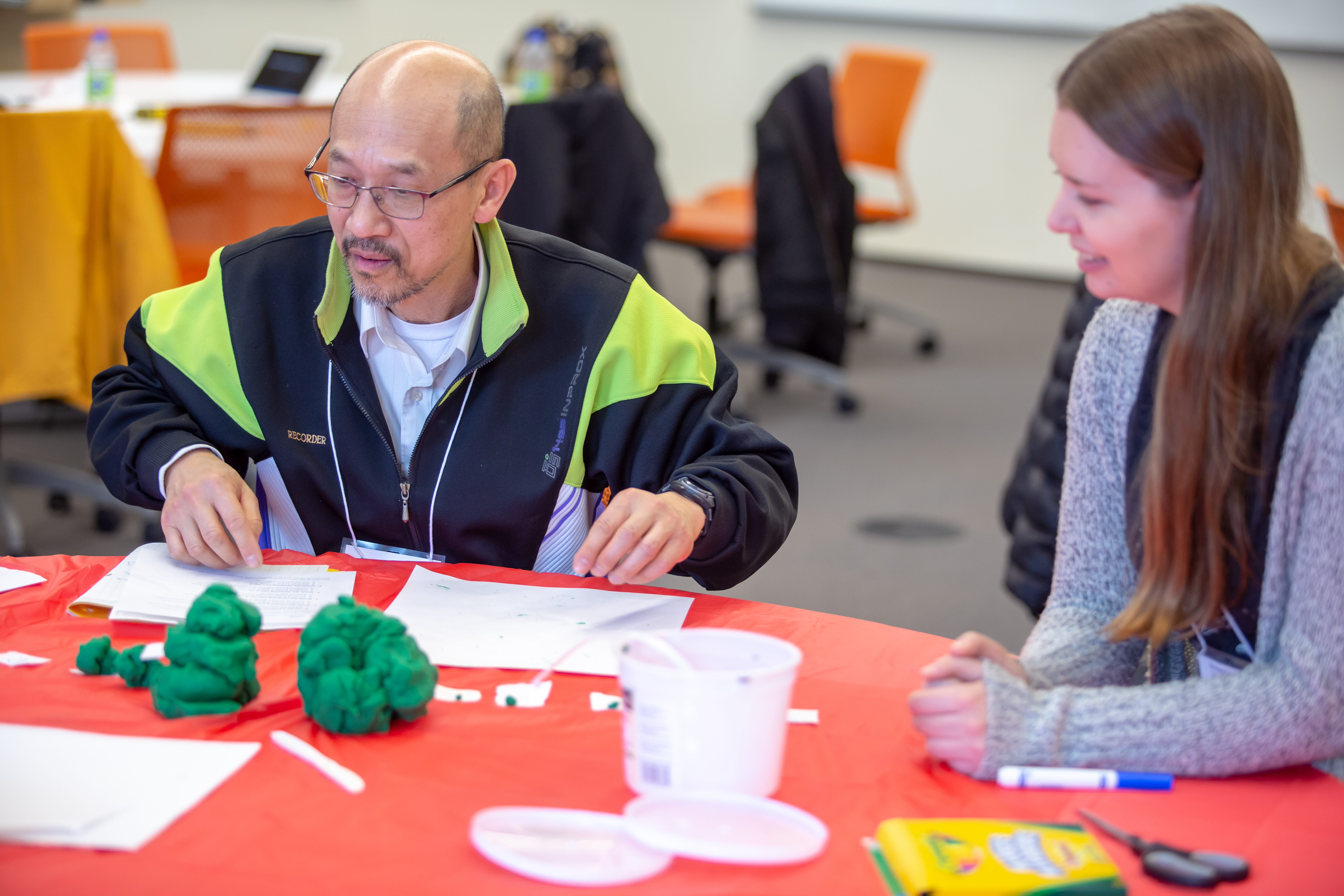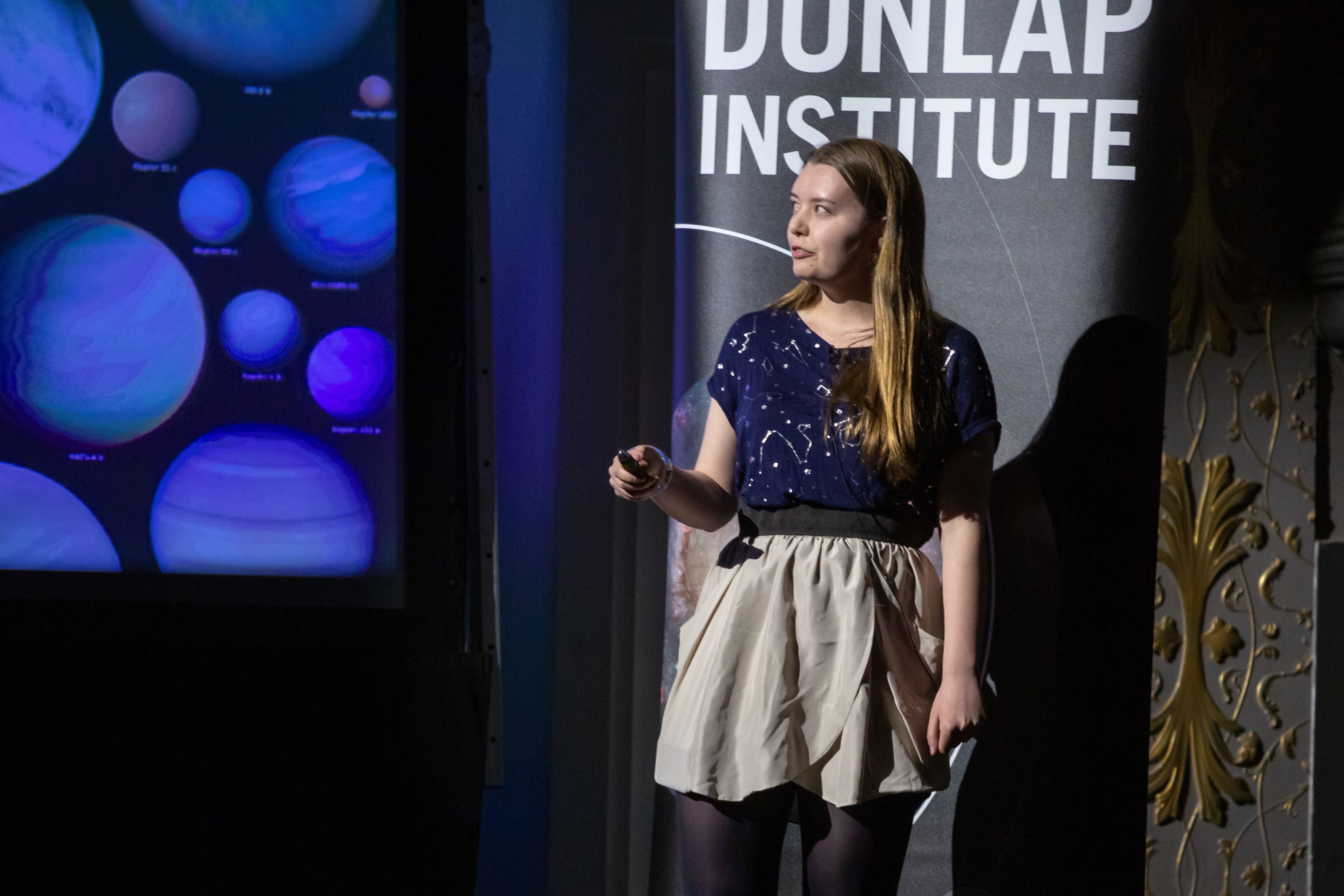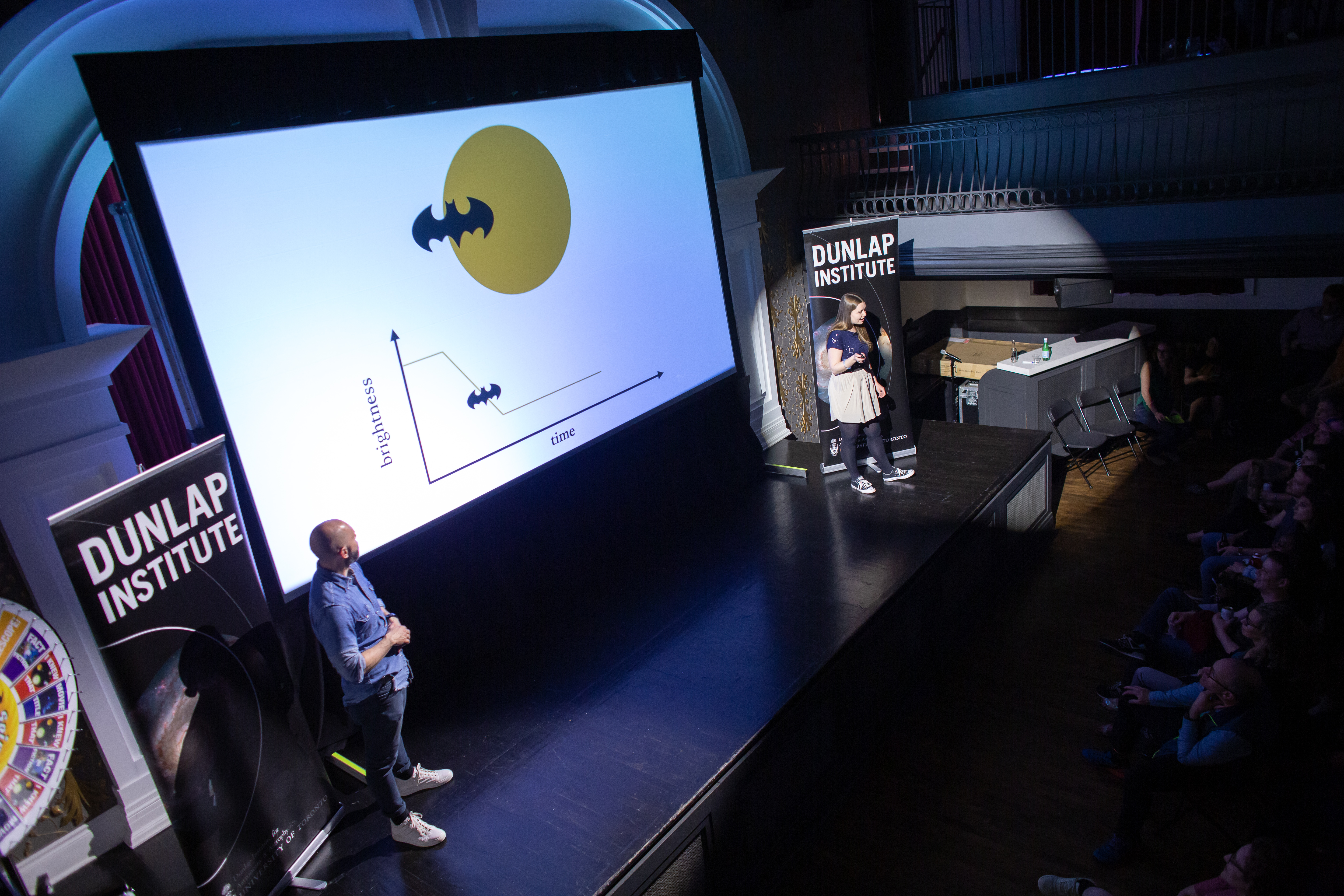University of Toronto graduate student and Dunlap Institute researcher Emily Deibert has been awarded the University of Toronto Alumni Association’s Graduate Award of Excellence. These awards are considered among the highest honour within the U of T community.
During her time at U of T and Dunlap, Deibert has not only excelled academically, but also continues to tirelessly participate in science leadership, communication, writing, and outreach initiatives.
The team at Dunlap chatted with Deibert (remotely of course!) to learn more about all of her amazing work.
Congratulations on your award! You weren’t always planning to go into the field of astronomy. What was your original plan, and what changed your mind?
When I started my undergraduate degree at U of T in 2012, I was planning on studying English because I’ve always loved reading and writing. In addition to my English courses, I took Astronomy 101 because I needed a science credit, but I ended up loving the course far more than I’d expected, and felt very inspired by everything I was learning.
A few years after that, I participated in Dunlap’s SURP program, working at the Algonquin Radio Observatory. That experience really got me interested in astronomy research. I’m lucky that I’m now able to pursue research but also do a lot of writing on the side, so in some ways, I’m still on the same track I’d started out on back in my first year at U of T!
Tell us a bit about your current research.
I’m currently working with [Dunlap’s] Suresh Sivanandam and Ray Jayawardhana (who is at Cornell) on studying the atmospheres of exoplanets. Our focus is on two classes of exoplanets known as “hot Jupiters” and “super Earths.” Because we don’t have these types of planets in our own Solar System, there are many open questions about how they form and what their atmospheres might be like. We use high-resolution, ground-based telescopes around the world to study the near-infrared light from these planets -Ultra-hot-Jupiters actually start to radiate their own light in the near-infrared regime, and we can observe this light to learn more about the chemical makeup of these exoplanets.
You are known around Dunlap and U of T Astro for your great outreach contributions. Can you tell us why science communication is so important to you?
Before taking astronomy in my first year of university, I never saw myself as a scientist — science was actually my least favourite subject in school! But I think that good science communication can make science fun and interesting, and helps people see that anyone can become a scientist if that’s something they want to pursue. I also think it’s important that the general public is informed about science and understands scientific ways of thinking, because so many aspects of our lives today are touched by science in one way or another, and it’s important to understand this role that science plays.
Let’s say it’s five years from now – what’s your ideal scenario?
Five years from now I would love to still be teaching and writing about astronomy, hopefully on more of a full-time basis than I am now! I’ve had a lot of fun writing about astronomy from different perspectives and for different media outlets, and I would love to be able to pursue that further in the future.
For a full list of University of Toronto Alumni Association Awards recipients, click here.



